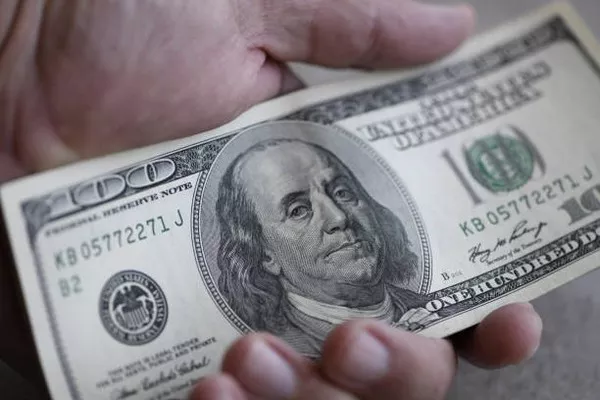In the realm of global finance, few concepts carry as much weight and significance as the reserve currency status of the US dollar. For decades, the greenback has reigned supreme as the preferred medium of exchange for international trade and the primary reserve asset held by central banks worldwide. However, as economic landscapes evolve and geopolitical dynamics shift, questions inevitably arise about the future of the dollar and the emergence of potential alternatives. In this article, we delve into the factors driving discussions about what currency could potentially replace the dollar as the world’s preeminent reserve currency.
Factors Influencing Currency Replacement
The potential replacement of the US dollar as the global reserve currency hinges on a complex interplay of economic, political, and geopolitical factors. Economic stability, monetary policies, and fiscal discipline all play crucial roles in determining the attractiveness of a currency for international transactions and reserve holdings. Additionally, geopolitical tensions and power shifts among nations can influence perceptions of currency reliability and trustworthiness.
Emerging Global Players
One of the most frequently cited contenders for challenging the dominance of the US dollar is the Chinese yuan. With China’s rapid economic growth and increasing influence on the global stage, some analysts argue that the yuan could eventually emerge as a viable alternative reserve currency, especially if China continues to internationalize its currency and liberalize its financial markets. Other established currencies like the Euro also pose potential alternatives, given the stability of the Eurozone and the euro’s widespread usage in international trade.
Economic Stability and Performance
Assessing the economic stability and performance of the US dollar relative to other currencies is essential in understanding the prospects for currency replacement. While the dollar has historically been perceived as a safe haven asset, recent fluctuations in inflation rates, interest rates, and fiscal deficits have raised concerns about its long-term viability. Currencies of countries with robust economic fundamentals and sound monetary policies may present compelling alternatives for investors seeking stability and value preservation.
Geopolitical Considerations
Geopolitical tensions and power struggles can significantly impact the status of reserve currencies. Escalating trade disputes, sanctions, and geopolitical rivalries may erode confidence in the dollar and prompt countries to diversify their reserve holdings. Additionally, geopolitical alliances and strategic partnerships can influence currency preferences, as seen in efforts by some countries to reduce dependence on the dollar through bilateral currency agreements and multilateral initiatives.
Role of Central Banks
Central banks wield considerable influence over currency markets and reserve allocations through their monetary policy decisions and foreign exchange interventions. The policies pursued by major central banks, particularly the Federal Reserve, the European Central Bank, and the People’s Bank of China, can shape the trajectory of global currency dynamics. Central bank digital currencies (CBDCs) also represent a potential avenue for reshaping the international monetary system, offering greater efficiency, transparency, and interoperability in cross-border transactions.
Rise of Digital Currencies
The rise of digital currencies, including cryptocurrencies and central bank digital currencies, introduces new complexities and possibilities into the debate over reserve currencies. While cryptocurrencies like Bitcoin have garnered attention as alternative stores of value and mediums of exchange, concerns about regulatory oversight, volatility, and scalability remain significant obstacles to their widespread adoption as reserve assets. However, the development of stablecoins and CBDCs by governments and central banks could potentially revolutionize the global financial landscape, facilitating instantaneous, cost-effective cross-border transactions.
Historical Precedents
History provides valuable insights into the dynamics of currency replacements and transitions in the international monetary system. The transition from the British pound to the US dollar as the world’s primary reserve currency following World War II serves as a prominent example of a seismic shift in global financial hegemony. Lessons learned from past transitions can inform policymakers and market participants about the challenges and opportunities associated with potential changes in reserve currencies.
Investor Perspectives
Investors and financial institutions closely monitor developments in the currency markets and adjust their portfolios accordingly to manage risks and seize opportunities. Diversification strategies, currency hedging techniques, and geopolitical risk assessments play critical roles in shaping investor sentiment and asset allocation decisions. As discussions about the future of the dollar intensify, investors are likely to scrutinize alternative currencies and assets that offer diversification benefits and protection against currency depreciation.
Global Economic Outlook
The broader global economic outlook exerts a profound influence on the demand for reserve currencies and the functioning of the international monetary system. Economic growth prospects, trade dynamics, inflationary pressures, and central bank policies all contribute to the evolving landscape of global finance. Shifts in economic power and the rise of emerging markets could reshape the distribution of global currency reserves and challenge the traditional dominance of Western currencies.
Potential Scenarios and Implications
Looking ahead, various scenarios could unfold regarding the future of reserve currencies and the international monetary system. A gradual diversification away from the dollar towards a basket of currencies or a multipolar system characterized by competing regional reserve currencies are among the potential outcomes. The implications of such developments extend beyond financial markets to encompass geopolitics, trade relations, and global governance structures, underscoring the interconnectedness of economic and political forces in shaping the world order.
In conclusion, while the US dollar remains the dominant reserve currency for now, ongoing geopolitical shifts, technological innovations, and economic transformations are prompting discussions about potential alternatives. Understanding the factors driving these discussions and the implications for global finance is essential for policymakers, investors, and individuals alike as they navigate an increasingly multipolar and digitized world economy.


